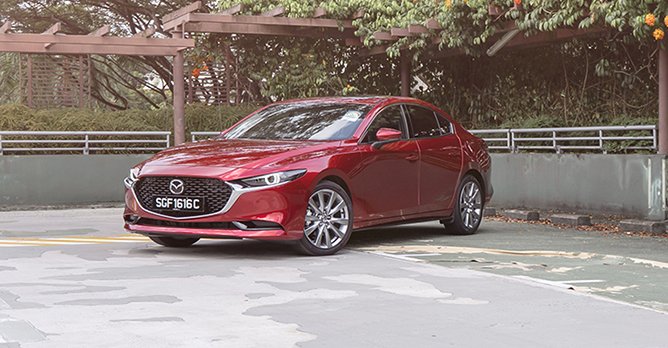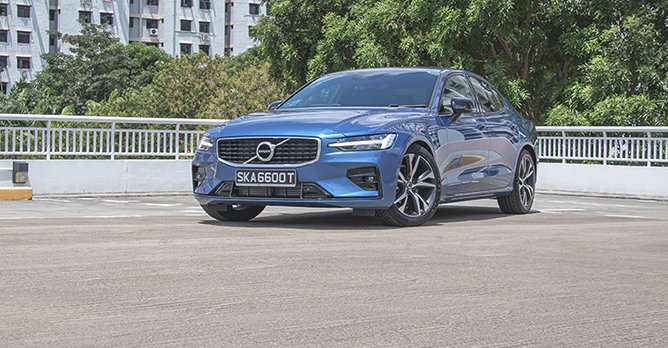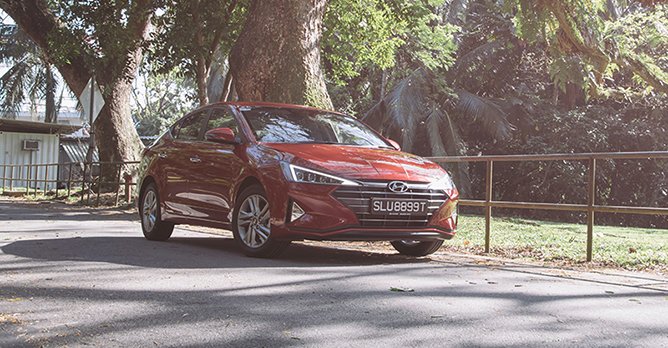What makes cars so expensive in Singapore?

It's been said a thousand times over - cars in Singapore are much too expensive. And it's simply a fact - Singapore has the highest import tax on cars in the world. And, as we have previously broken down, buying and running a car in Singapore can add up to some eye-watering costs.
Cars in Singapore can easily be three to four times the price of the equivalent model in other markets. Just why is this the case? We break down the nine different components that make up the final price of a new car here in Singapore.

Assessed by the Singapore Customs, a car's Open Market Value (OMV) takes into account the purchase price, freight, insurance and all other charges incidental to the sale and delivery of the car from the country of manufacture to Singapore.
It's important to note that the OMV is not the selling price from the manufacturer to local authorised dealers. Rather, it's the 'value' of the car as assessed by Singapore customs, and a value on which taxes are then calculated upon.

The excise duty, 20 per cent of the car's OMV, is an additional form of tax imposed. What exactly is an excise duty? Simply put, it's a tax to increase the cost of a particular good, designed to discourage the purchase of such goods.
In most countries, they typically cover commodities like alcohol, tobacco, and some energy products. In Singapore, excise duties are charged on four types of goods - intoxicating liquors, tobacco products, motor vehicles and petroleum products and biodiesel blends.

The Good & Services Tax (GST) broad-based consumption tax levied on the import of goods, as well as nearly all supplies of goods and services in Singapore. For motor vehicles, it is calculated at 7 per cent of the OMV and Excise Duty combined.
There is a basic administrative fee of $220 for the registration of a new car.
The Additional Registration Fee (ARF) is a tax imposed on all cars during registration, and is calculated as a percentage of the vehicle's OMV.
| Vehicle Open Market Value (OMV) | ARF rate (% of OMV to pay) |
| First $20,000 | 100 per cent |
| Next $30,000 (i.e. $20,001 to $50,000) | 140 per cent |
| Above $50,000 | 180 per cent |

This will be a surcharge or rebate depending on the vehicle's emission rating and banding. VES is based on a vehicle's carbon dioxide (CO2) emission, plus emissions of 4 pollutants - hydrocarbons (HC), carbon monoxide (CO), nitrogen oxides (NOx) and particulate matter (PM).
If you register an electric or plug-in hybrid car, an emission factor of 0.4g CO2/Wh will be applied to its electricity energy consumption to rate its carbon emission.
| Band | Rebate* | Surcharge |
| A1 | $20,000 | $0 |
| A2 | $10,000 | $0 |
| B | $0 | $0 |
| C1 | $0 | $10,000 |
| C2 | $0 | $20,000 |
* Subject to a minimum ARF of $5,000

The Certificate of Entitlement allows you to register a car for 10-years of usage. It consists of three motor car categories - Cat A (cars up to 1,600cc in engine capacity and an output of no more than 130bhp), Cat B (larger cars with more than 130bhp or engine displacements larger than 1,600cc), and Cat E (Open).
The COE price is determined via an open bidding system, and you can find the latest COE prices here.

Road tax is part of your vehicle ownership tax. As part of vehicle ownership tax, every registered vehicle in Singapore must have valid road tax before it is allowed to be driven. Road tax is a recurring yearly cost, paid in either six or 12-month intervals.
While not strictly part of a vehicle's inherent cost, most dealers will usually throw in a year's road tax payment. Subsequent years of payment will be borne by the owner.
Road Tax - For Petrol, Petrol-Compressed Natural Gas (CNG), CNG or Diesel Cars
| Engine Capacity (EC) in cc | 6-Monthly Road Tax |
| EC≤600 | $200 x 0.782 |
| 600<EC≤1,000 | [$200 + $0.125(EC - 600)] x 0.782 |
| 1,000<EC≤1,600 | [$250 + $0.375(EC - 1,000)] x 0.782 |
| 1,600<EC≤ 3,000 | [$475 + $0.75(EC - 1,600)] x 0.782 |
| EC>3,000 | [$1,525 + $1(EC - 3000)] x 0.782 |
| Power Rating (kW) | Current 6-Monthly Road Tax Formula | Power Rating (kW) | New 6-Monthly Road Tax Formula from 1 January 2021 |
| PR≤7.5 | $200 x 0.782 | PR≤7.5 | $200 x 0.782 |
| 7.5<PR≤32.5 | [$200 + $2(PR - 7.5)] x 0.782 | 7.5<PR≤30 | [$200 + $2(PR - 7.5)] x 0.782 |
| 32.5<PR≤70 | [$250 + $6(PR - 32.5)] x 0.782 | 30<PR≤90 | [$250 + $3.75(PR - 30)] x 0.782 |
| 70<PR≤157.5 | [$475 + $12(PR - 70)] x 0.782 | 90<PR≤230 | [$475 + $7.50(PR - 90)] x 0.782 |
| PR>157.5 | [$1,525 + $16(PR - 157.5)] x 0.782 | PR>230 | [$1,525 + $10(PR - 230)] x 0.782 |

There are also other costs, such as the In-Vehicle Unit fee and vehicle number plate fee.
For electric cars, there is an annual Additional Flat Component (AFC) of $700. It is applicable from Jan 1, 2021 onwards. If your car is registered before Jan 1, 2021, the AFC is waived for 3 years from Jan 1, 2021 to Dec 31, 2023. The full AFC quantum will be applicable from Jan 1, 2024.
There is also a special tax for diesel or diesel-CNG cars:
| Emission Standard | 6-Monthly Special Tax Rate |
| Pre-Euro IV compliant | 6 times the Road Tax of an equivalent petrol-driven car less $100 |
| Euro IV compliant | $0.625 per cc for 6 months less $100 Subject to a minimum payment of $525 per 6 months |
| Euro V or JPN2009 compliant | $0.20 per cc for 6 months less $100 Subject to a minimum payment of $100 per 6 months |
However, you may also get some rebates depending on the type of vehicle you are buying. For example, recent initiatives have been announced to incentivise people to buy electric cars. For full details, click here.
On top of everything we've already covered, there is also the additional dealer markup or profit, which can range anywhere between 15 per cent to 50 per cent.
As a result, the amount you pay for a brand new car can be anywhere between 230 per cent to 310 per cent of the cars OMV.
This article was first published in sgCarmart.